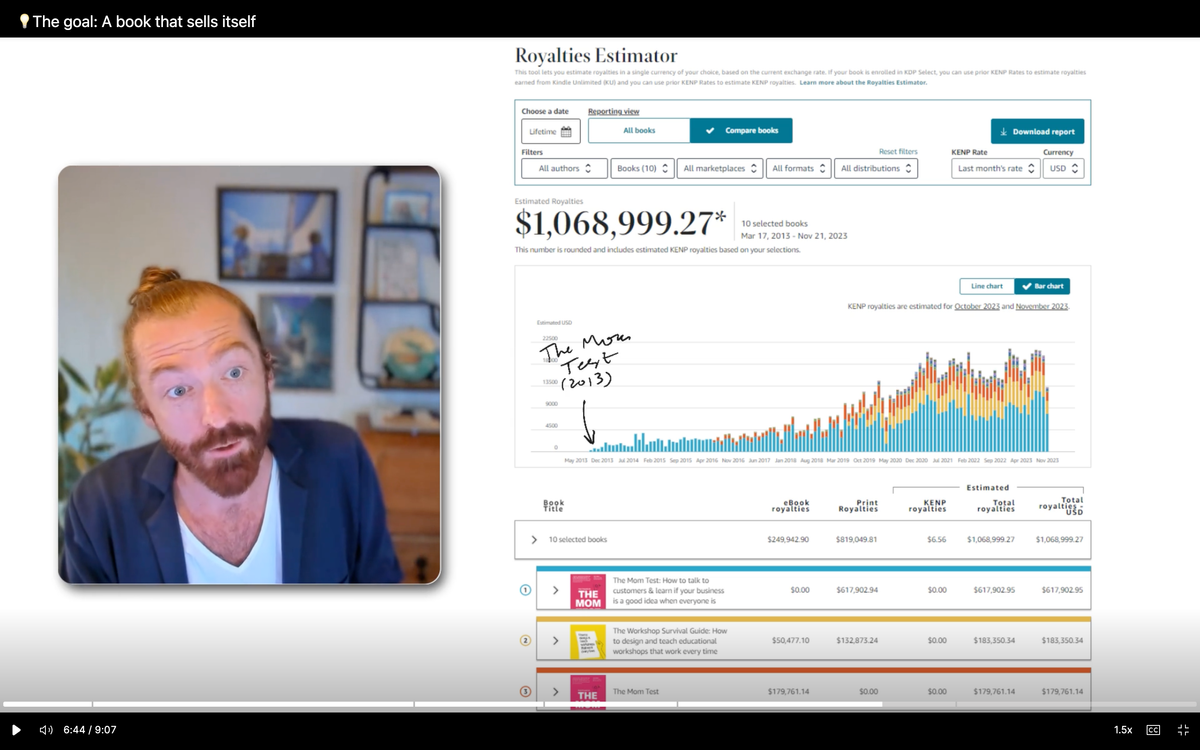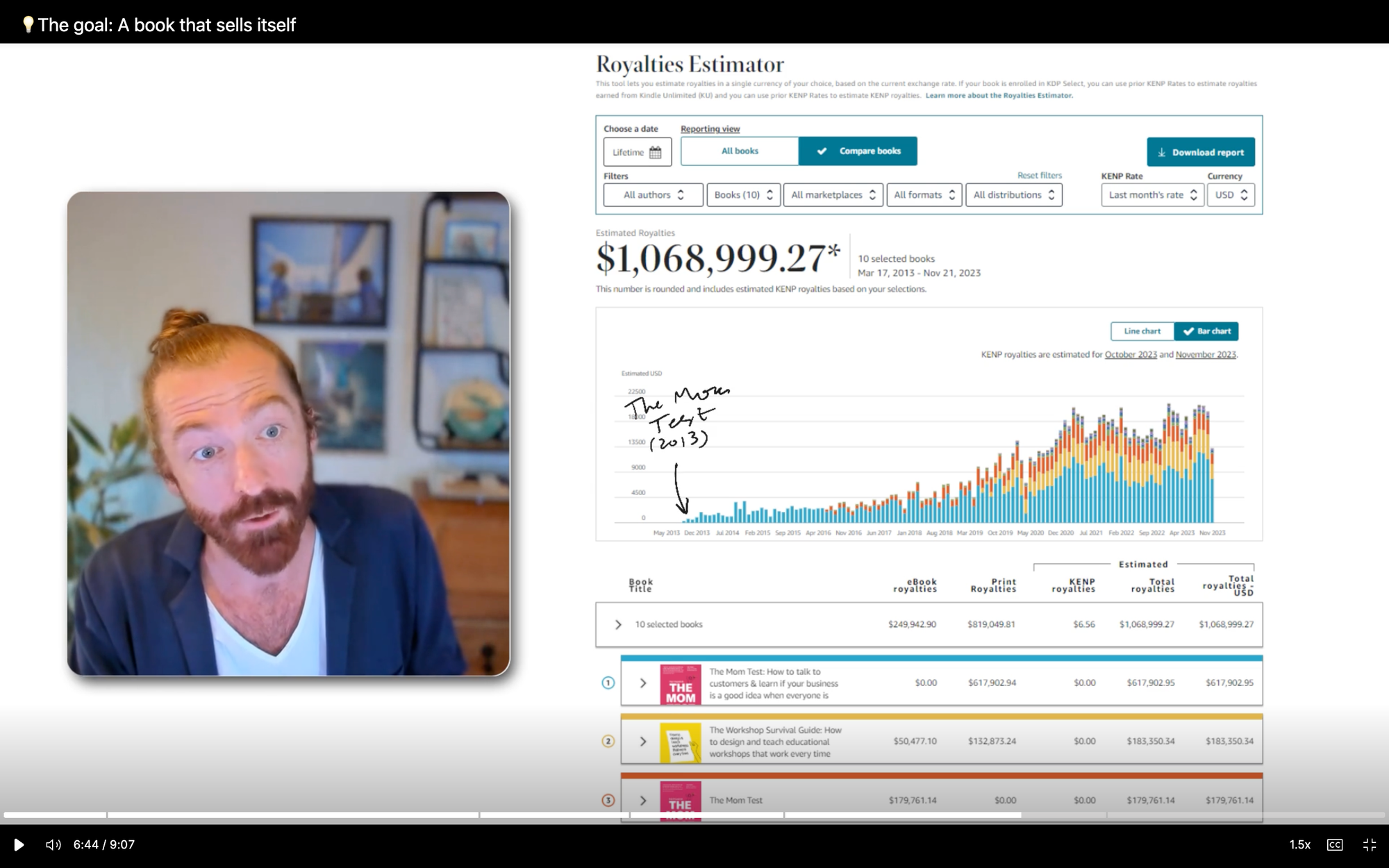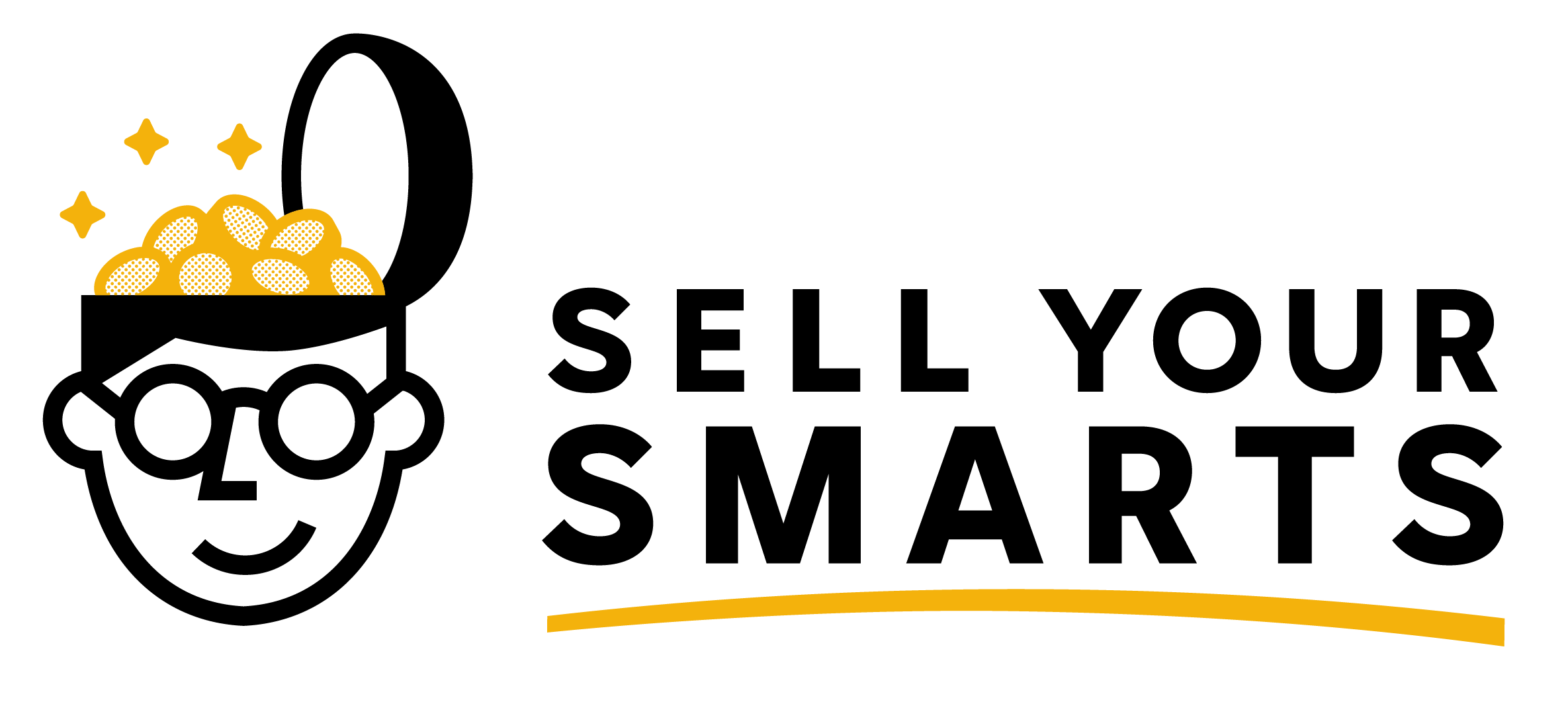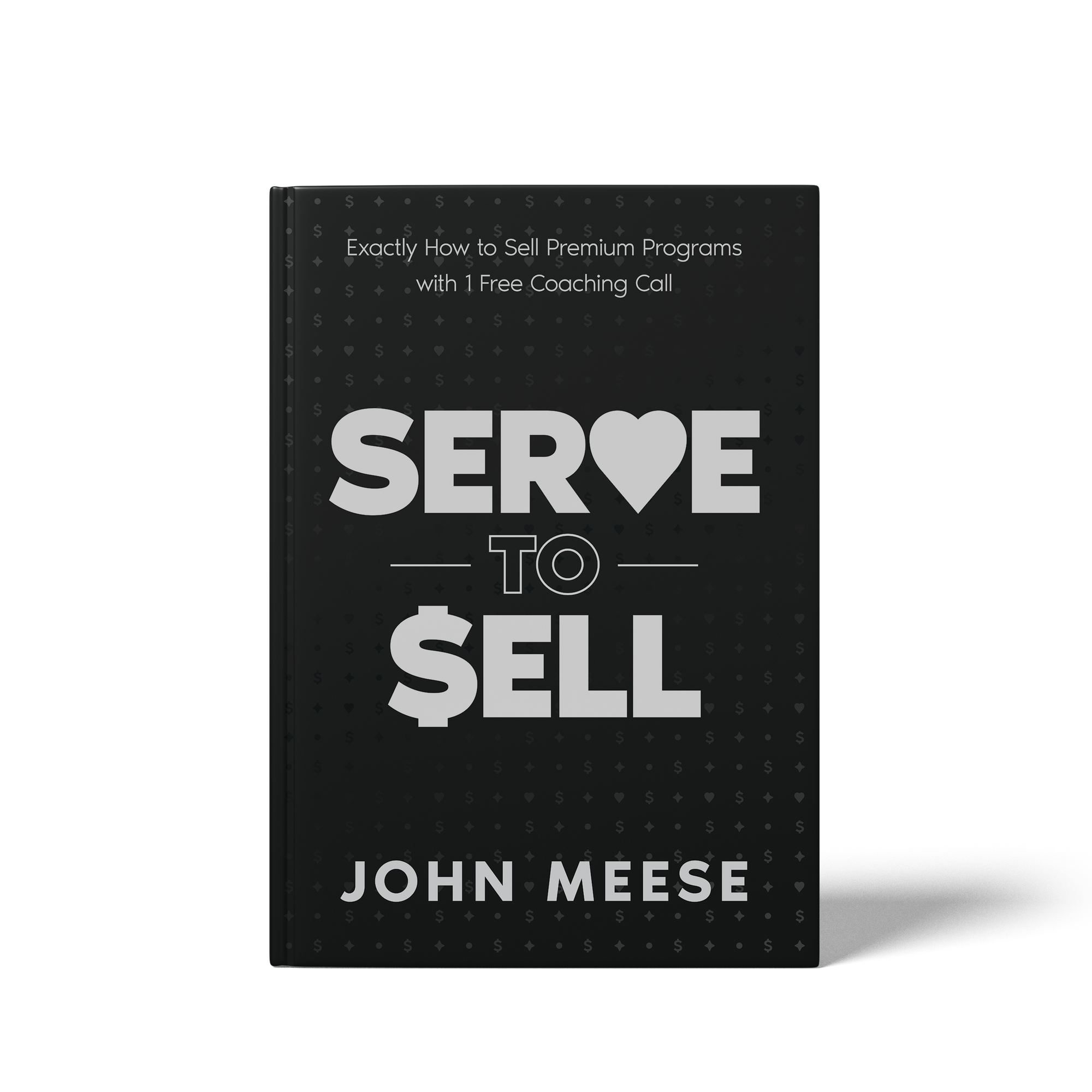When you write a useful book, other people sell it for you

As I walked into my favorite coffee shop, Warren waved me over to his table to introduce me to a new friend of his,
“John Meese is an author, entrepreneur—the whole deal. You’re writing a book right now and you’re lost, right? You should talk to him.”
I shook his friend’s hand with a smile, reached into my backpack, and gave him my copy of Write Useful Books by Rob Fitzpatrick.
My only advice was “Read this book. It changed my entire approach to writing, and I’m sure it will really help you too.”
That moment happened just five minutes ago as I'm writing this. The exact word-of-mouth recommendation that Rob teaches authors to plan and prepare for while crafting a book!
“The goal of book marketing is to stop needing to do it”
Rob Fitzpatrick earns $30K per month in book royalties from a few self-published books with zero ongoing marketing efforts, and that number has been steadily climbing since 2013.
The first time I heard that, I didn’t believe it, but I’ve now seen Rob’s royalty payment dashboard that shows more than $1 million earned from his first two books:

I’ve also seen a picture of the sailboat Rob bought with his first royalties from The Mom Test and then sailed along the cost of Europe living off monthly book royalties alone.

After three years of self-described “vagabonding”… he got bored. So Rob went back to work.
After repeating his success with The Workshop Survival Guide he wrote Write Useful Books and created custom software to help authors create better books (while starting a family, living in Spain).
“Useful books are problem-solving products”
I think Rob’s story is important because he is not depending on a huge audience or massive book launch or marketing team to sell his books. He doesn’t even have an email list!
Rob creates books like he would create a software product, since that’s his background expertise:
- Make a clear promise and put it on the cover (teach the book to test its contents)
- Begin beta reading while the manuscript still has problems (fall in love with negative feedback)
- Follow up to see whether the book actually worked (collect evidence of results related to the promise)
Plant seeds with your first 1,000 copies
Even if you write a useful book, you still need to do “seed marketing” to get the first books into the hands of your target reader so they can read it, use it, and recommend it to others.
For Rob’s first book, he hustled to get the first 1,000 copies into the hands of his target reader. He gave away half of those to conference attendees even though it cost him money to print!
According to one study my McKinsey, “word of mouth is the primary factor behind 20 to 50 percent of all purchasing decisions” and that is especially true with books.
Think about your favorite books for a minute. Do you remember how you first heard of them?
I made a quick list of useful books that I’ve read and loved which I bought because other people recommended them to me, but I could have listed many more:
- Essentialism by Greg McKeown
- The Alchemist by Paulo Coelho
- Rich Dad, Poor Dad by Robert Kiyosaki
- Resilient by John Eldredge
- The E-Myth Revisited by Michael E. Gerber
- Turning Pro by Steven Pressfield
- Profit First by Mike Michalowicz
- Family Revision by Jeremy Pryor
- The Millionaire Next Door by Thomas J. Stanley
- Write Useful Books by Rob Fitzpatrick
Books are incredible tools of influence that have stood the test of time. More books are published today than ever before, but most of them fade from memory faster than fads do.
I've written three books, which have all been great by most standards and bestsellers on their own, but my first useful book (following Rob's framework) is Serve to Sell: Exactly How to Sell Premium Programs with 1 Free Coaching Call.

